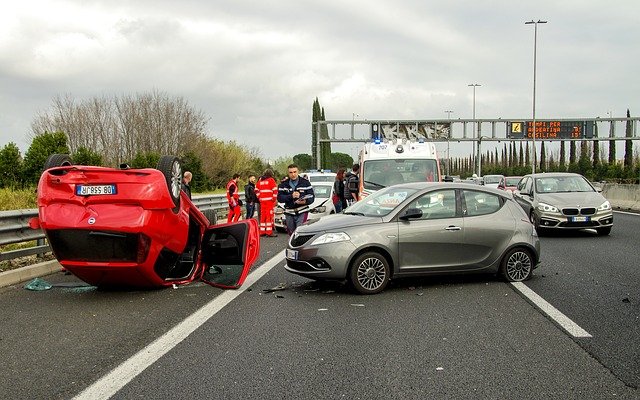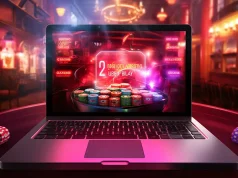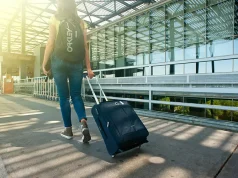
When you’re involved in an accident with someone who’s been drinking or using substances, it can be a terrifying experience. Drunk driving accidents often lead to severe injuries and death. If you do survive an accident with a driver influenced by drugs or alcohol, that person will likely face both criminal and civil liability.
Other parties might also be liable in an accident that involves a drunk driver, which is detailed below.
Criminal vs. Civil Liability
Drunk driving is a serious crime that often has significant consequences. Depending on the circumstances of a crash and the severity of the charges the drunk driver is facing, they could face fines, community service, loss of their license, and jail or prison time if they’re ultimately convicted.
Criminal charges are part of the justice system, but they aren’t a way to compensate victims for their losses because of the drunk driver.
That’s where the role of civil cases becomes relevant.
A criminal case is brought by the government against people accused of crimes. Civil cases are brought either by a victim or a victim’s family against an individual, company, or entity. The theory underlying civil cases is that the negligent or malicious behavior of another person or organization leads to damages, including physical and financial.
When someone is hurt by a drunk driver, if they file a lawsuit in civil court, they are seeking compensation for economic losses, like medical expenses and lost wages, and also non-economic damages for losses like mental and emotional suffering and pain or reduced quality of life.
Who’s Liable?
If you’re in an accident with a drunk driver, then the first thing a personal injury attorney is going to want to do is to start to work out who the liable parties are. It’s not always as clear as it might seem because both parties could have contributed to the accident. For example, were you speeding when the accident occurred?
If you’re the injured party, you’re responsible for proving the negligence or recklessness of the other party was the proximate cause of your injuries, even if the other involved driver was arrested for driving under the influence.
Determining Fault and Liability
If you’re in an accident with a drunk driver, they’re being under the influence is likely to be what’s the blame as far as negligence, but under the law, there has to be a clear causal link that connects the impaired driver’s action to your accident and injuries.
There are a few elements of a case involving negligence.
The first is duty. When you’re on the roadways, you have a duty to follow traffic rules and respect the safety of others. Then, there’s a breach of that duty that has to occur. A breach of duty is the fact that the other person was under the influence of a substance, but it can also include things like speeding and reckless driving.
The next element of a negligence case relies on showing that if you’re the person who was hit by a drunk driver, you’d still have had injuries even if the driver wasn’t impaired. Then, there’s the proximate cause, so if the injuries were outside of what the driver who was impaired could have foreseen reasonably, then the plaintiff may be unable to show the impairment of the driver was the proximate cause for the injuries.
Finally, the plaintiff, which, if you’re the one who was hurt is you, has to show they suffered damages. This can include bodily injuries and property damage to the vehicle.
If you’re in an accident with someone who’s drunk and you suffer damages as a result, it’s fairly straightforward to assume the driver breached their duty through their impairment, but you’re still responsible for connecting the dots.
There’s always a possibility that even if the other person was drunk, you contributed to the accident.
If you were texting, for example, and you cut off a drunk driver, and they rear-end you, you’re both then dealing with bodily injury and damage to your vehicles. If you hadn’t been on your mobile phone, you wouldn’t have cut the other driver off, so this could be a scenario of comparative or contributory negligence.
Most states use comparative negligence laws, reducing damages by the percentage of fault that can be attributed to whoever the plaintiff is. Courts tend to come down hard on drunk driving, but they also realize there are other risky behaviors behind the wheel that can happen.
Dram Shop Laws
There are so-called dram shop laws that may apply in your case. Dram shop laws hold businesses liable when they serve or sell alcohol to minors or to people who are visibly intoxicated and later go on to injure or kill another person or cause property damage.
The laws were initially introduced in the 18th century.
These laws are enacted at the state, not the federal level. Every state establishes its own statute that holds establishments liable in some circumstances and to different degrees, depending on the law in the state.
The phrase dram shop law comes from the British way of measuring alcohol in the 18th century. It was called a dram, and it was measured to ¾ of a teaspoon.
Dram shops in the 18th century were bars, pubs, taverns, and anywhere else serving drams of alcohol. Now, these regulations apply to any business that serves or sells alcohol, including taverns, liquor stores, restaurants, bars, and stadiums.
These laws let third-party victims of another person’s drunken behaviors file a civil lawsuit against the establishment, the clerk who sold the alcohol, or the wait staff.
A victim might be able to bring a lawsuit against the intoxicated person as well, receiving damages from both parties. Sometimes, dram shop laws in certain states will let the person who was drinking bring a lawsuit against whatever business sold them alcohol.
For third-party victims, the biggest challenge with these dram shop laws is proving liability.
There are a set of items you have to prove as the victim, including that the establishment sold the alcohol to the visibly intoxicated victim who caused the accident.
If you’re in a situation where you’ve been in an accident with an intoxicated driver, it’s overwhelming, and the best first step you can take after you’ve ensured your safety and gotten medical treatment is to talk to a personal injury attorney.





